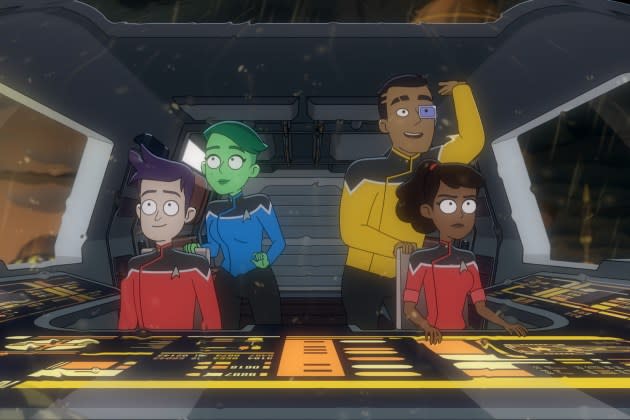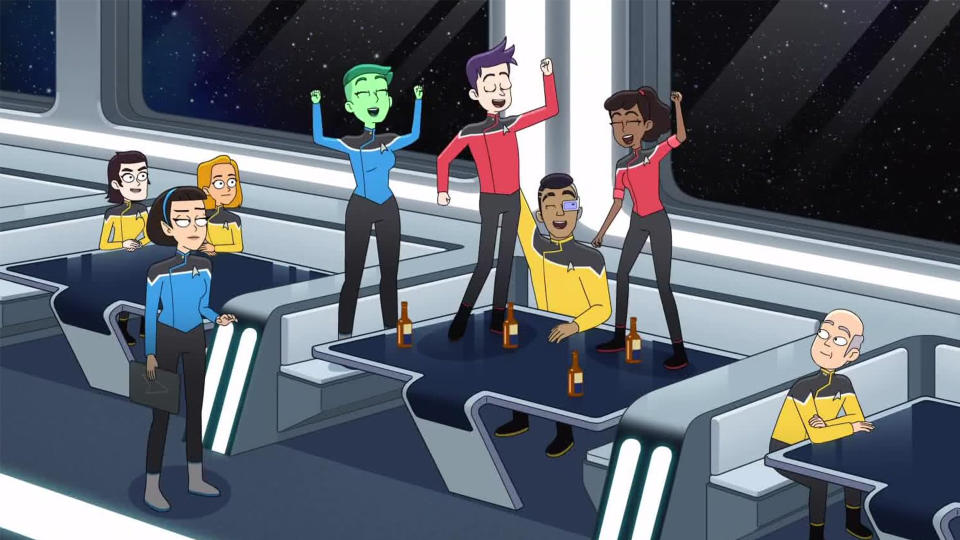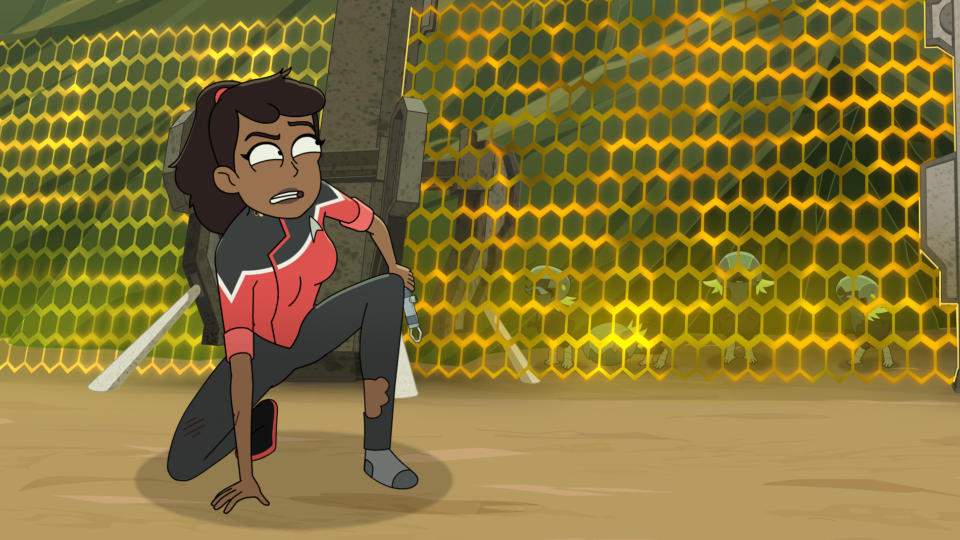‘Star Trek: Lower Decks’ Creator Mike McMahan On Making His “Dream Animated” Series: “Five Years Later, It Still Feels Like A Miracle”

Even though the end is on the horizon for Star Trek: Lower Decks, creator Mike McMahan says this experience has still felt like a miracle. When he came in with the idea for an animated Star Trek series, following the comedic adventures of lower-level officers, he was prepared to be shown the door. Instead, McMahan ended up creating an Emmy-nominated series for Paramount+ with a fifth, and final, season on the way.
Star Trek: Lower Decks follows the support crew serving on one of Starfleet’s least important ships. While other series in the Star Trek universe focuses on the exciting adventures of captains and senior officers, Lower Decks takes a look at the often comedic misadventures of the low-ranking officers with menial jobs. Season four has a large focus on Mariner [Tawny Newsome]’s backstory and character arc, which McMahan says is something he couldn’t really do on other serialized programs he’s worked on before.
More from Deadline
2024 Premiere Dates For New & Returning Series On Broadcast, Cable & Streaming
'Inside Out 2' Review: Pixar's Talky, Uneventful Sequel Doesn't Have Much Fun In Mind

DEADLINE: Where did the idea come from to have an animated Star Trek that can kind of make fun of itself?
MIKE MCMAHAN: I knew some folks over at Secret Hideout and they had talked to me before about maybe coming in to be a lower level writer on Star Trek Discovery when they were starting that. And then I was working on Rick and Morty when that took off at the same time, and Alex Kurtzman and everybody over there was a big fan of it. So, since we’d already known each other and they knew I was a Star Trek guy, they asked me to come in and talk to them about what my dream animated Star Trek show would be and I kind of went in being like, “Look, you’re not going to like it. It’s not about the important stuff. My favorite thing in Star Trek is the B stories, the little behind the scenes things and the little slice of life stuff they start episodes with, so if I could do a show, it would all be about lower-level officers with sort of comedic stories.” And they a hundred percent responded to it. It wasn’t this crafted thing, it really came out of a conversation with Alex about what I like about Star Trek, what gets me excited about it and how would I interpret the franchise through a writing lens that I’m comfortable with. I remember calling my wife afterwards and saying, “Okay, this can’t be right, but I think I just sold a Star Trek show.” Five years later, it still feels like a miracle.

DEADLINE: For season four, can you talk about exploring more of Mariner [Tawny Newsome]’s character arc, beginning with that promotion in the first episode?
MCMAHAN: When we’re planning this stuff out for character arcs, you don’t want the comedy to be affected. You don’t want the show to be affected. You don’t want it to feel like it isn’t the show, right? There’s a reason why the Simpsons stay the same age, because you’ve got a great format with the show that you want to still be telling jokes and stories in. Being able to do character arcs, seeing people grow and change season to season was something that was available to me that I really didn’t have access to before. If we were going to do serialized stuff before, it had to be very lightly serialized previously and not rely on you having seen everything.
But in this, there is the fun of getting to arc people out. In writing the character of Mariner and in seeing Tawny interpret her, there was a cool thing to get to do because the theme of the show is all about finding yourself in your 20s and the funny stuff that’s happening around then while you’re still figuring stuff out. Mariner was a star fleet officer who was great at her job, but was still dealing with stuff and figuring stuff out. And then we were finding a lower deck story to tell with her where she loved to rage against the machine, but slowly there was less and less of a machine to rage against. So, once you’re promoted and people aren’t feeding into your chaotic persona, if there’s nobody else to fight, you have to address the stuff that may have been motivating you to do fight the whole time.
Trying to do that in a way that felt honest, felt like Star Trek and was still fun and funny, was the best kind of problem to have as a writer. That was something that was really exciting to me. And then, leading into season five, you’ll see that Mariner’s come out the other side of a pretty heavy emotional arc for her in season four, but she’s still funny and she’s still herself. I think it really speaks a lot to how Star Trek can let characters do that and then it doesn’t make them less likable or less interesting, but actually enhances them moving forward.
DEADLINE: Speaking of Tawny, you have some incredible improvisors doing the voice acting. Are you ever able to use improvised dialogue, or is everything scripted?
MCMAHAN: I’d say it depends on the actor and the day. If I had to guess, I would say maybe 4 or 5%. We usually record everything as written and then we let people play with it, and then if I’m not satisfied with something and hearing how it’s playing in the booth or in an edit, we might go back and workshop it a little bit together. I do want people to have the freedom to play with stuff, but we only have 20 something minutes to tell two fully arcing stories in this show, so a lot of the time if we’re goofing around and improving and finding stuff, it’s just not going to end up in the episode because we have so much business to get done with stakes and characters and stuff happening. But when we can get it in there, I love it. I love hearing natural cartoons. I love hearing people speak naturally and comedically in Star Trek and having a cast that can rattle off Star Trek engineering terms as much as they can rattle off and be comfortable with comedic stuff and improvisation is really, really fun to do.
Best of Deadline
Sign up for Deadline's Newsletter. For the latest news, follow us on Facebook, Twitter, and Instagram.

 Yahoo News
Yahoo News 